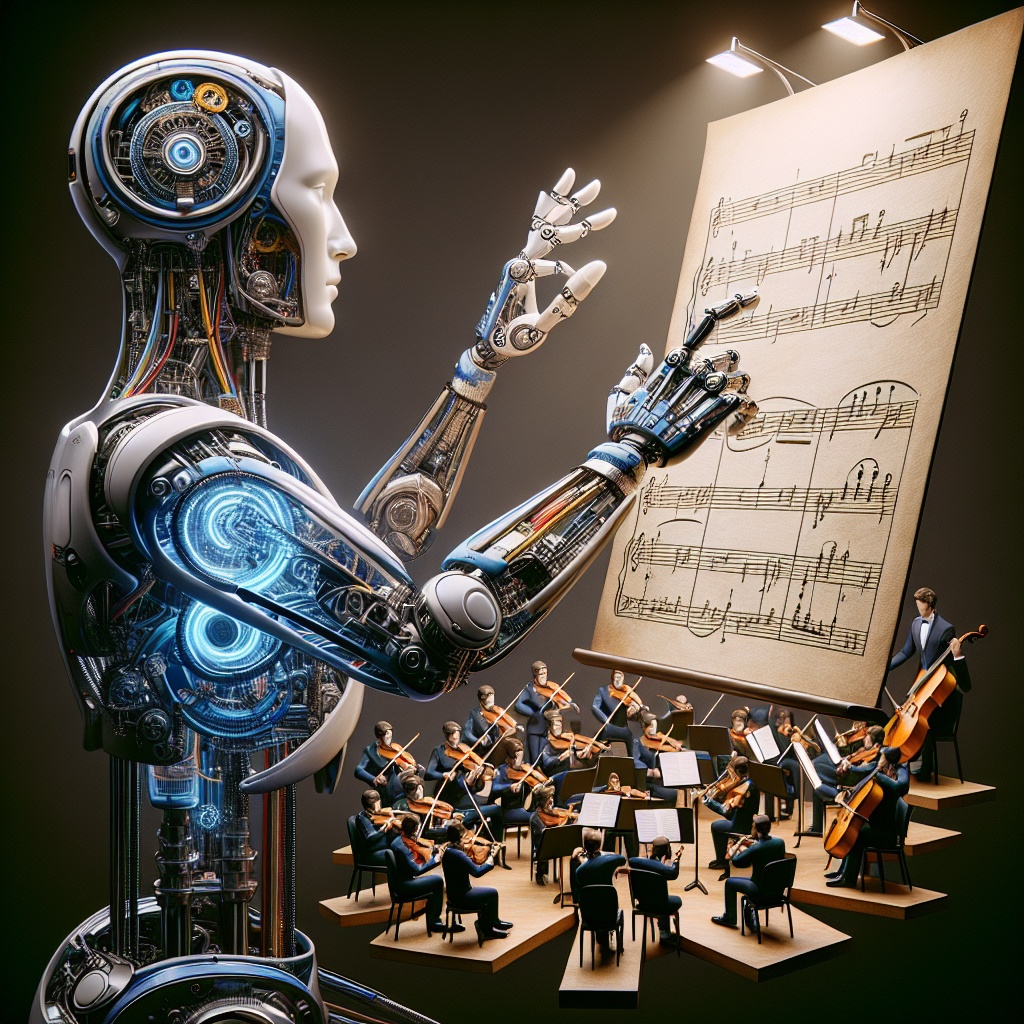Artificial intelligence (AI) is revolutionizing industries across the board, and the music industry is no exception. From composing to performing, AI is changing the way music is created, produced, and consumed. In this article, we will explore how AI is transforming the sound of music and what the future holds for this exciting collaboration between technology and art.
### AI in Music Composition
One of the most powerful applications of AI in music is in composition. AI algorithms can analyze vast amounts of data from existing music to generate new compositions that mimic the style of famous composers or create entirely new genres. Companies like Amper Music and Jukedeck are using AI to create customized music tracks for video games, advertisements, and other media.
AI can also assist human composers by suggesting chord progressions, melodies, and harmonies based on the input provided by the composer. This can speed up the composition process and provide new creative possibilities for musicians.
### AI in Music Production
AI is also being used in music production to enhance the sound of recordings. Companies like LANDR and AI Mastering use AI algorithms to automatically master audio tracks, making them sound more polished and professional. This can help independent musicians and producers achieve high-quality results without the need for expensive studio equipment or engineers.
AI can also be used to separate and isolate individual instruments in a recording, making it easier to remix or edit tracks. This technology, known as source separation, can be a game-changer for producers looking to create new versions of existing songs or collaborate with other artists.
### AI in Music Performance
While AI has made great strides in composition and production, its role in music performance is still evolving. However, there are already examples of AI being used to create virtual musicians that can perform live concerts or collaborate with human musicians. Companies like Mubert and AIVA have developed AI musicians that can generate music in real-time based on the input of the audience or other musicians.
AI is also being used to enhance live performances through technologies like Ableton Live and Native Instruments’ Stems format, which allow musicians to manipulate and remix tracks on the fly using AI algorithms. This can create unique and interactive experiences for both performers and audiences.
### AI in Music Curation
Another area where AI is making an impact in the music industry is in curation. Streaming services like Spotify and Apple Music use AI algorithms to recommend music to users based on their listening habits and preferences. These algorithms analyze data points like tempo, key, instrumentation, and mood to create personalized playlists for each user.
AI can also be used to analyze music reviews, social media posts, and other online content to identify emerging trends and predict which songs or artists will be successful in the future. This can help record labels and music marketers make more informed decisions about which artists to promote and which songs to release.
### FAQs
**Q: Is AI replacing human musicians?**
A: While AI is becoming increasingly sophisticated in its ability to compose, produce, and perform music, it is unlikely to replace human musicians entirely. AI can be a powerful tool for enhancing the creative process and providing new opportunities for musicians, but human emotion, intuition, and expression are still essential elements of music that cannot be replicated by machines.
**Q: How can musicians benefit from AI?**
A: Musicians can benefit from AI in a variety of ways, including speeding up the composition and production process, enhancing the sound of recordings, and creating new opportunities for collaboration and experimentation. AI can help musicians reach new audiences, improve their workflow, and explore new genres and styles of music.
**Q: Are there ethical concerns about AI in music?**
A: There are some ethical concerns surrounding the use of AI in music, particularly related to issues of copyright and ownership. As AI algorithms become more advanced, there is a risk that they could be used to create music that infringes on the rights of existing artists or composers. It is important for musicians and music industry professionals to be aware of these issues and take steps to protect their intellectual property.
**Q: What does the future hold for AI in music?**
A: The future of AI in music is bright, with new innovations and applications emerging all the time. As AI technology continues to advance, we can expect to see even more powerful tools for composition, production, performance, and curation. AI has the potential to revolutionize the music industry, creating new opportunities for artists, producers, and listeners alike.
In conclusion, AI is changing the sound of music in exciting and innovative ways. From composition to production to performance, AI is revolutionizing the music industry and providing new opportunities for musicians and listeners alike. As technology continues to advance, we can expect to see even more exciting developments in the intersection of AI and music.

